2020 NAEd/SPENCER DISSERTATION FELLOWS
Kylie L. Anglin, University of Virginia
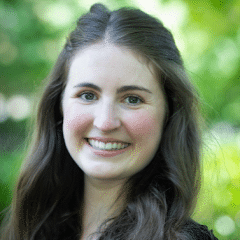
Kylie L. Anglin is a Ph.D. student in Education Policy at the University of Virginia. Her research focuses on developing and using data science approaches to examine variations in policy and intervention implementation, as well as the impact of intervention heterogeneity on student outcomes. In an article published in the Journal of Research on Educational Effectiveness, she proposed a framework for using web scraping and natural language processing techniques to collect data on district responses to state policies from online policy documents. In that article, Kylie illustrates this framework in the context of statewide education deregulation under the Texas District of Innovation statute. In her dissertation, she builds on her descriptive work surrounding the District of Innovation statute to evaluate the impact of the policy, and heterogeneous district responses, on student outcomes. Kylie is also developing methods for using natural language processing techniques to assess treatment fidelity and replicability in intervention evaluations that take place in educational settings. She has published on methods related to causal inference, replication, and open science in Evaluation Review, Oxford Bibliography in Education, and Zeitschrift für Psychologie, and she is a regular presenter at APPAM, AEFP, and SREE. Prior to coming to University of Virginia, Kylie earned a B.A. in Political Science from Southwestern University, a Post-Baccalaureate in Mathematics from Northwestern University, and a Masters in Public Policy from the University of Virginia. Kylie has worked as a 7th grade English teacher and as an evaluator for an after-school program.
Who Needs Rules? The Impact of Deregulation in Traditional Public Schools
Traditional public schools in the United States must comply with a variety of regulations on educational inputs like teacher certification, maximum class sizes, and restrictions on staff contracts. Absent regulations, policymakers fear that troubled districts would make inappropriate decisions, but it is also possible that strict regulations hinder schools from adapting inputs to their unique contexts and from optimizing their ability to educate students. In this dissertation, I test the salience of these two hypotheses within the context of a widespread deregulation effort in Texas. This policy change allows traditional public school districts to claim District of Innovation status and opt out of regulations not related to health, safety, and civil rights. Districts have responded enthusiastically; today, the majority of Texas school districts are Districts of Innovation and free to opt out of regulations. This widespread response provides an opportunity to explore heterogenous responses to regulatory freedom and the impact of regulatory freedom on school operations and student outcomes. To this end, I merge a scraped dataset of regulatory exemptions with administrative data and capitalize on variation in implementation dates by conducting a generalized difference-in-difference analysis. I estimate the impact of regulatory flexibility on teacher characteristics, class sizes, and student achievement. This is the first study to explore the impact of regulatory freedom on a near state-wide population of traditional public schools. Findings will have broad implications for the kinds of statutes legislatures should prioritize and whether education regulations may be better tailored to local needs.
Christopher Bennett, Vanderbilt University
Chris Bennett is a Ph.D. candidate in the Department of Leadership, Policy, and Organizations at Vanderbilt University’s Peabody College of Education and Human Development. His research examines the ways that higher education policies can influence the trajectories of individuals and institutions, with a particular emphasis on students who have been historically underrepresented in higher education. Primarily using quasi-experimental and other quantitative methods, his current work focuses on issues of college access, graduate/professional education, and labor market outcomes for students.
Prior to entering the doctoral program, Chris spent eight years with RTI International, where he served as a research analyst for a number of higher education studies conducted on behalf of the U.S. Department of Education and National Science Foundation. Through his work on several surveys of current and former graduate students, he developed a strong interest in graduate/professional education, which is the focus of his dissertation. He received an A.B. in Public Policy and American Institutions from Brown University.

Master’s for Hire: Experimental Evidence on Employers’ Perceptions of Master’s Degrees from For-Profit Institutions
Enrollment in graduate degree programs has expanded in recent decades, facilitated in part through for-profit institutions and other primarily online programs. Despite the prominence of such comparatively broad-access graduate degree programs, there is little evidence on the impacts of such graduate credentials on labor market opportunities. To help address this gap in the literature, my dissertation includes a résumé audit experiment that compares employer callback rates for occupations in business and health care, two of the most common fields for master’s degrees. For each job opening, the randomly generated résumés vary systematically only by master’s degree attributes. Each résumé lists a master’s from a for-profit institution, a master’s from another primarily online institution, a master’s from a primarily on-campus regional institution, or no master’s degree (i.e., bachelor’s only). The results will provide some of the first experimental evidence of employers’ preferences between job candidates who attended various types of broad-access master’s programs, and will also facilitate comparisons between candidates with and without master’s degrees. Additionally, subgroup analyses will explore how such employer preferences may vary by the applicant’s gender and race. Such findings will be relevant to prospective students, universities, and policymakers in their understanding of the potential economic returns to master’s degrees. The dissertation also includes two additional papers. One examines predictors of graduate school enrollment using multinomial logistic regression models, and the other features a discrete-time survival analysis of factors associated with unionization efforts among contingent faculty members.
Christina Brown, University of California, Berkeley
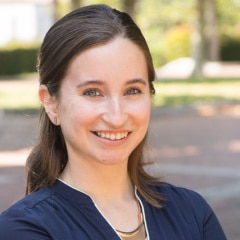
Christina Brown is a doctoral student in Economics at UC Berkeley. She is interested in labor markets and human capital development in low resource settings. Her research focuses on the role of performance incentives and monitoring on employee motivation and screening in South Asia. In particular, she looks at the role of peer and manager knowledge to overcome moral hazard and adverse selection.
She has worked on research projects throughout Africa and Asia and conducted fieldwork in Tanzania, Indonesia, Pakistan and India. Before graduate school, she worked as a research fellow at the Harvard Kennedy School and a consultant for the World Bank and Save the Children. She has a MALD from the Fletcher School at Tufts, concentrating in development economics, and a BA from UCLA in Physics & Political Science. Prior to working as a researcher, she taught AP Physics & Biology in a low-income school outside Boston.
How Can Principals Motivate Teachers? Understanding Subjective Performance Pay versus Monitoring
Good teachers provide enormous short and long term benefits for their students. Attracting good teachers into the profession is a key area of policy interest for which there is relatively little evidence. This study uses teachers’ contract choices and randomized controlled trial with 2500 teachers in 252 private schools in Pakistan to study whether performance pay can attracts and retains higher quality teachers. Consistent with models of adverse selection, we find that performance pay can induce positive selection into schools. High value-added teachers and teachers who respond more strongly to incentives significantly prefer performance pay and sort into these schools in response to these preferences. Using information treatments and additional contract treatment arms, we are able to isolate that high-quality teachers sort because they have accurate information about their quality, rather than due to differences in risk or competition preferences. Teachers also have significantly more information about their quality than their principal both at the time of hiring and throughout their tenure at the school. Taking into account the sorting effects from performance pay suggests that we have significantly underestimated the benefits of performance pay contracts on teaching quality.
Alisha Butler, University of Maryland, College Park
Alisha Butler is a Ph.D. Candidate in the College of Education at the University of Maryland, College Park. She is a mixed-methods researcher whose work draws on interdisciplinary perspectives to interrogate the overlapping ecologies of schools, neighborhoods, and cities that shape students’ and families’ experiences with schools and education. Her dissertation uses qualitative methods to investigate gentrification’s effects on urban schools, with a focus on how middle-class families in gentrifying communities select secondary schools for their children, how administrators and educators respond to changing school demographics, and how gentrification shapes the politics of family engagement in urban schools. Her broader research portfolio includes evaluations of after-school programs, teacher and administrator evaluation systems, school turnaround, and initiatives to bolster family and community engagement in schools. In addition to research, Alisha enjoys long-distance running, cycling, and photography. She earned an MA in education policy from the University of Maryland, College Park and a BA in political science from Yale University.

There Goes the Neighborhood School: Towards an Understanding of the Effects of Gentrification on Public Schools
Gentrification has transformed the physical, cultural, and demographic landscape of cities across the United States. The increased movement of middle-class parents – or parent gentrifiers – to urban neighborhoods and their subsequent investment in urban public schools has raised questions about the meanings and implications of gentrification for public schools. Focusing on Washington, DC, my three-paper dissertation project investigates the following overarching question: How does gentrification shape the culture and climate of urban public schools? First, I investigate the values and processes that guide parent gentrifiers’ selection of middle and high schools for their children. Next, I draw on a multisite case study of three elementary schools to examine how gentrification shapes the politics of family engagement. The case study investigates how educators and administrators respond to changing demographics in their school communities and how parent gentrifiers and longtime resident parents negotiate their respective – and perhaps competing – interests in urban schools. Through this project, I seek to amplify stakeholder perspectives that are underrepresented in the literature on school gentrification, including parent gentrifiers with middle and high school-aged children, school administrators and teachers, and longtime resident parents. Moreover, the dissertation aims to challenge narratives that position school personnel and longtime families as passive recipients of school gentrification’s benefits or displaced victims of the process. In sum, the papers’ central contribution will be to reveal the transformative promises and challenges of gentrification for urban schools to inform strategies to build inclusive communities for students and their families.
Chelsea Chamberlain, University of Pennsylvania

Chelsea Chamberlain is a PhD Candidate in History at the University of Pennsylvania. With a focus on the nineteenth and twentieth century United States, her research bridges political history and the history of medicine, disability, and education. Exploring the years 1890-1930, her dissertation argues that disabled people, their families, and their teachers were key participants in the development of medical, political, and educational approaches to mental and “moral” disabilities. Conducting research in the archive of a still-operating provider for people with intellectual and developmental disabilities gave rise to Chelsea’s additional research interests in archival ethics, medical privacy, and historical memory. Her work on these themes appeared in Nursing CLIO’s Adventures in the Archives series. These interests also drive her current work as the Humanities Advisor for the pre-production documentary The Fate of Human Beings, which uses mid-twentieth-century institutional cemeteries as an entry point into broader conversations about disability justice, memorialization, and the ongoing fight over deinstitutionalization. Chelsea holds a BA in History from Whitworth University in Spokane, Washington, and an MA in History from the University of Montana in Missoula. Her work has received support from the Consortium for History of Science, Technology, and Medicine and the Lilly Graduate Fellows Program.
“Receiving, Sorting, and Disposing of Children”: The Place of Human Defect in Progressive America
Focusing on the years 1880-1930, my dissertation examines three key sites of Progressive reform: institutions for the feebleminded, diagnostic clinics, and “special” classes in public schools. I argue that the history of education in America cannot be understood apart from the development of institutions for the feebleminded. I use the newly opened archive of the Pennsylvania Training School for Feeble-Minded Children at Elwyn to examine how disabled people, their families, and their teachers bent eugenic institutional care to their own purposes. Informed by their intimate experiences of impairment, families turned to institutions as a resource their complex emotional, medical, and material needs. Elwyn’s residents asserted their capacity for adult work and relationships and ran away with regularity. Institution teachers worked to expand their students’ capacities and spread their pedagogical methods to public school teachers in special classrooms across the country. Crucially, those with greater care needs were frequently relegated to the background, not only in psycho-medical professionals’ ideologies and administration but in the expectations that families and teachers brought to bear on institutional life. My project combines this social history of institutional life with a study of the production of medical, educational, and cultural knowledge. I show that the tense relationship between progressivism’s grand vision for society and everyday people’s hopes for themselves and their children produced new psycho-medical expertise, expanded the reach of public education, and constrained the power of compulsory eugenics.
Frances Cooley, University of Texas at Austin
Frances Cooley is a doctoral candidate in Linguistics at the University of Texas at Austin. She double majored in brain and cognitive sciences and American Sign Language (ASL) at the University of Rochester. Before beginning graduate school, Frances spent two years in research labs at Boston Children’s Hospital/Harvard Medical School studying the neural and cognitive development of children with developmental disorders. She also worked on a project investigating sign language use in Deaf children with autism at Boston University. More recently, Frances has been working on a project documenting a developmental signed language disorder in a deaf child from a deaf, signing family. Her dissertation work uses psycholinguistic and mixed-model statistical methods to examine the processes by which Deaf and Hard-of-Hearing (DHH) children learn to read. In particular, she studies DHH signers of ASL who are bilingual (ASL and written English) and who attend schools where both English and ASL are used for instruction. The long-term goal of Frances’ research plan is to influence educational practices that would promote optimal development of DHH children’s reading skills. Frances lives in Austin, TX, with her partner Drew and dogs Salvador and Lola. Together, Frances and Drew teach ASL workshops at bars and breweries in Austin to promote ASL use and help staff interact with Deaf patrons.
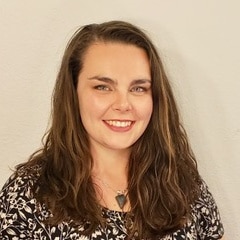
Investigating the Role of Visual Language on Reading Strategies in Native Deaf Signers
Our understanding of DHH signers’ reading acquisition is relatively understudied, resulting in a lack of consensus for best educational practices with regards to literacy instruction. DHH children who are exposed to a signed language could exploit multiple linguistic cues in the visual modality that may contribute to reading, including aspects of American Sign Language (ASL) and fingerspelling, and experience with written English. Additionally, the processes by which these children learn to read may be systematically different than those of their hearing peers, in part due to a primarily visual experience with language acquisition and use. Various researc¯hers contend that some DHH children’s struggle with literacy acquisition is due to a lack of access to English speech sounds, which results in a deficient ability to match speech sounds with written letters. Other scholars, noting the advanced written English skill of many DHH adults without any access to spoken English, have suggested that proficient signed language use predicts more advanced reading in DHH children.
My approach accounts for various aspects of the visual language signal experienced by DHH signers, primarily ASL and written English. I employ eye-tracking and mixed-model statistical analyses to investigate reading strategies employed by young DHH readers. Specifically, I target whether DHH children use speech-based cues when reading, as many early hearing readers do, or if their strategies differ systematically due to their unique language experiences.
Angela Crumdy, City University of New York Graduate Center

Angela Crumdy is a Ph.D. candidate in the Department of Anthropology at the Graduate Center, City University of New York (CUNY). Generally, she is interested in historiography, gender and social reproduction as it relates to Latin America and the Caribbean. Her dissertation research is focused on how recent socio-economic shifts impact the experiences of Black women primary school educators in Cuba during the country’s teacher shortage. In addition to the NAEd/Spencer Dissertation Foundation Fellowship, she previously received a Dissertation Fieldwork Grant from the Wenner-Gren Foundation for Anthropological Research to support the data collection phase of her project.
Angela is the Secretary/Historian for the American Educational Research Association’s Graduate Student Council. As a Presidential Magnet Fellow at the Graduate Center, she supports underrepresented undergraduate students in the CUNY system as they navigate the graduate school preparation and application process. Previously, she was an Advanced Research Collaborative Student Fellow and also served as a member of the Anthropology Now Findings Collective. Prior to graduate school, she served as a high school English teacher in Dallas, Texas. Angela holds a B.A. in Anthropology and Latin American and Caribbean Studies from the University of Michigan, Ann Arbor.
Teaching Revolution: Black Women Primary School Teachers, Socio-economic Transition and Race in 21st Century Cuba
Cuba is globally renowned for its widely successful 1961 Literacy Campaign, competitive student achievement and for maintaining a near 100% literacy rate. What is lesser known, however, is that the country has struggled with a teacher shortage for over a decade. Although teacher shortages are not specific to Cuba, this case is unique in that the economic turmoil of the 1990’s Special Period intensified race and class-based cleavages to the point that disparities are reminiscent of times prior to the 1959 Revolution. This dissertation research uses a mixed-method approach to investigate how Black women primary school educators in Havana, Cuba navigate their work and home lives during the country’s contemporary teacher shortage. Utilizing discourse analysis, oral history and participant observation, this ethnographic study addresses gaps in the existing literature, which often only considers teachers as it relates to their interactions with students and largely fails to address Caribbean women’s labor that is in service of anyone other than foreigners. This study nuances understandings of formal education in Cuba by decentering nationalist discourse and utilizing an intersectional framework. Additionally, results from this study will inform understandings of teacher identity and teacher shortages in “post” socialist contexts.
Miles Davison, University of California, Irvine
Miles Davison is a doctoral candidate in sociology at the University of California, Irvine and a National Science Foundation Graduate Research Fellow. His research broadly examines racial disparities in school discipline outcomes and how these disparities shift under policy or programmatic reform efforts. Miles’ research is driven by a desire to assist schools and communities in efforts to create systems of support for at-risk youth of color. Thus, the bulk of his training and work as a graduate student has focused on developing the skills and partnerships necessary to conduct research that prioritizes community impact.
At UC-Irvine, Miles has received training from the Center for Administrative Data Analysis and has worked with university partners to produce research that informs local practice. Apart from his academic work, Miles has held numerous leadership positions where he has focused on mentoring first-generation college students of color and advocacy for underrepresented students. He has also served as the Student Representative for the Sociology of Education section of the American Sociological Association.
Miles holds degrees in sociology from the University of California, Irvine (M.A.) and Texas Christian University (B.A).

Examining School Discipline Under Restorative Justice
Research underscores the pivotal role school discipline plays in shaping students’ educational attainment. As awareness about racial disproportionality in exposure to punitive disciplinary environments has increased, schools have begun to adopt restorative justice (RJ) programs that aim to interrupt the school-to-prison pipeline. Rather than removing a student from the school environment during a conflict, RJ programs seek to minimize punitive disciplinary approaches like suspension and instead promote practices aimed at building relationships between students and teachers, mediating conflict, and improving school climates. Although schools are increasingly implementing RJ programs to address concerns around the short- and long-term consequences of punitive school discipline, there is need for research examining the effects of RJ programs and if certain aspects of RJ are particularly important for supporting youth in education.
Drawing on a unique data infrastructure from three partner sites, this project investigates 1) how RJ affects students differentially by race, 2) how RJ effects may vary based on on-the-ground practices, and 3) if restorative justice effects are particularly pronounced for students involved in disciplinary incidents focusing specifically on student socioemotional outcomes. Through examining school-based restorative justice programs at three sites, this work will not only provide important insights into where and for whom restorative justice is effective, but also contribute to broader conversations on intervention programs, racial inequality and the school-to-prison pipeline.
Shauna Dyer, University of Michigan

Shauna Dyer is a Ph.D. candidate in the Department of Sociology at the University of Michigan. Her interests include postsecondary educational inequality, social mobility, labor market changes, and family income inequality. Her research explains how individuals with postsecondary education can experience disappointing economic outcomes. To accomplish this, she had developed studies that disentangle how much of these poor outcomes can be attributed to declining college completion rates or a destabilized labor market. She recently coauthored a paper on changes within higher education that both promote and suppress intergenerational income mobility which was published in the American Sociological Review. She is a Population Studies Predoctoral Trainee at the Institute for Social Research and an Institute for Education Sciences (IES) Fellow. She received her bachelor’s degree at California State University at Chico and her master’s degree at University of Oregon.
No Longer a Guarantee: Postsecondary Education, Job Quality, and Heterogenous Outcomes
Postsecondary education is often cited as a pathway out of poverty and a guarantee of a middle- class life. However, over the last forty years, we have seen an increase in those with postsecondary education (without or without a bachelor’s degree) who live below the poverty line, and the returns to higher education have become increasingly variable. The average returns to postsecondary education have been well documented, but the educational literature has not fully dealt with the issue of those who experience poor outcomes, and, most of all, has not sufficiently answered the following question: Who is to blame when those who attended college get bad jobs – higher education or the labor market? In recent years, there has been a great deal of criticism directed at higher education for not adequately equipping students for the labor market. However, if the problem of the value of postsecondary education lies not solely within higher education itself, but also within a destabilized labor market, any proposed changes within higher education may be premature. Using data from several sources including three nationally representative longitudinal surveys, the National Longitudinal Survey of Youth 1979, the National Longitudinal Survey of Youth 1997, and the Fragile Families and Child Wellbeing Study, I will compare the educational attainment and labor market outcomes for individuals born between 1958 and 1985 to deepen our current understanding of how changes in job quality interact with growing postsecondary attainment and potentially disrupt the economic returns and poverty reduction mechanisms of higher education.
Cindy Escobedo, University of California, Los Angeles
Cindy Raquel Escobedo is a Ph.D. Candidate in the Division of Social Sciences and Comparative Education, Race and Ethnic Studies in Education concentration, from the Graduate School of Education and Information Studies at the University of California, Los Angeles. Proudly raised by Mexican immigrant parents in the greater Los Angeles area, Cindy approaches her research and practice (or praxis) through a social justice perspective by centering the lived experiences of Students, Women, and Communities of Color. Her Chicana Feminist, Critical Race, and Social Science orientations capitalize on oral herstories, epistolary methodologies, and archival data sources to examine the educational experiences of Mothers and Daughters of Color, across time and space. As a scholar practitioner, Cindy’s professional and research passions explore the intersections of educational (in)equities, Latina/Chicana academic pathways, students with dependents, mother-daughter relationships, and the raced and gendered sociology of family. Throughout her tenure as a graduate student, she has served as a Teaching Fellow for the departments of Education and Chicana/o/x Studies. Cindy is concurrently a Research Associate for the Center for Critical Race Studies in Education at UCLA and has for the past seven years, served as a Senior Research Consultant for the Peer Learning Unit within the UCLA Academic Advancement Program (AAP). AAP is the nation’s largest undergraduate student diversity program promoting academic excellence for 5600+ scholars from historically underserved backgrounds. A three-time UCLA Bruin, Cindy holds a M.A. degree in Education, and a B.A. degree in Political Science with double minors in Education and Public Affairs.

“I’m following in your footsteps”: Chicana/Latina Motherscholar-Daughterscholar Experiences in Higher Education
Building on Dr. Patricia Gándara’s (1982) research on Latina (daughter)scholars (DS), and Dr. Michelle Tellez’s (2013) work on Chicana Motherscholars (MS), this study unveils the race, gender, and educational experiences of a distinct, yet growing population: Chicana/Latina mothers and daughters who attend U.S. Southwest colleges and universities at the same time. Specifically, it investigates how seven Chicana/Latina mother-daughter dyads (1) engage in bidirectional support through the exchange of woman-oriented knowledge, and (2) develop pedagogies of wholeness as they overcome challenges that impede college access and retention. Rooting its inquiry in Chicana Feminist and Critical Race frameworks, this research triangulates qualitative data in the form of: individual and paired mother-daughter pláticas, a conversation based methodology akin to semi-structured interviewing (Fierros & Delgado Bernal, 2016); Latina Mother-Daughter Epistolary Writings, a developing methodology which adapts elements of Nora Cisneros’ (2018) Indigenous Epistolary Methodology; and archival data sources. Preliminary findings reveal that MS-DS pairs report such cultural and academic hardships in their pursuit of higher learning as not receiving credit for their feminized labor and negotiating their responses to Maternal Microaggressions (Vega, 2019). In spite of these challenges, the women negotiate the terrains of motherhood, daughterhood, and academia by intentionally engaging in Motherwork and Daughterwork- reciprocal care practices that nurture their spiritual, physical, and interpersonal wellbeing. As a Critical Race Feminista (Delgado Bernal & Alemán, 2017) intervention to the miseducation of Women of Color, this dissertation (re)focuses the policy lens to consider the unique educational needs of Chicana/Latina scholars living in the U.S. Southwest.
Peter Francis Harvey, University of Pennsylvania
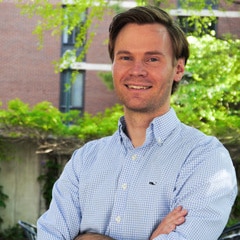
Peter Francis Harvey is a PhD candidate in Sociology at the University of Pennsylvania. His primary research interests center on education, culture, and inequality. In addition to his doctoral studies, Peter has worked for several years as a Graduate Associate, living in a dorm and supporting undergraduate residents. Peter’s work has featured in the Journal for the Scientific Study of Religion and the Bulletin of Sociological Methodology. His papers have received awards from the American Sociological Association’s Children & Youth and Sociology of Religion sections. Hailing from the U.K, before joining Penn Peter received an (undergraduate) M.A. in Sociology and Politics from the University of Edinburgh and an M.Phil. in Sociology from the University of Cambridge.
Shaking Hands and Standing Still: Lessons in Body Management from Two Elementary Schools
It is a truism that schools shape young minds. But what about young bodies? Psychologists have repeatedly shown that bodily practices (e.g., eye contact, posture) influence outcomes in crucial moments, such as job interviews. Meanwhile, sociologists have highlighted many ways in which class shapes the cultural lessons children learn at home. Yet the role of schools in transmitting culture to students, particularly cultural norms of embodiment, has often been overlooked. As such, this study interrogates the role of schools in managing the movement, sound, and shape of children’s bodies. I make use of three years of ethnographic observations conducted in two elementary schools – one predominantly upper-middle-class, one predominantly working-class, both racially diverse. With this data I make three contributions. First, I highlight the process of socialization, detailing the influence of repeated implicit and explicit lessons in shaping behavior. Second, I highlight how schools with different class profiles emphasize different norms of embodiment (e.g., honing handshaking skills versus maintaining respectful deference). As part of this I show the ways certain students – particularly students of color – receive harsher treatment from teachers for “inappropriate” comportment. Finally, I examine the mis/match in values between teachers and parents in managing children’s bodies. These foci call attention to embodiment as a crucial facet of cultural socialization, while also challenging our models on the transference and reproduction of inequality.
Bruce Haupt, University of Kentucky
Bruce Haupt is a doctoral candidate in the University of Kentucky’s online Ph.D. program in educational leadership. After working for three years as a high school drop-out, Bruce got his GED and enrolled at Eastern Florida State College (earning an A.A.). Since then, he’s aspired to a career in higher education where he could address educational opportunity and attainment challenges. Along the way, Bruce has completed a B.A. in Political Science at the University of Florida, and a M.P.P. at the Harvard Kennedy School. His education led to work at the City of Houston, the World Bank, and at Oman’s Supreme Council for Planning.
In Houston, Bruce served the Mayor and CFO in leading a new performance improvement and innovation team. He managed major restructuring projects, and also led the creation of: a citywide data analytics initiative; a lean six sigma educational program that achieved accreditation; and, a civic innovation not-for-profit organization with community and technology leaders. After moving overseas, Bruce advised on data innovation and private sector development projects for the World Bank, and was tasked with launching the national economic diversification program for Oman. These experiences are the basis for Bruce’s research interests in educational innovations, scaling change, and multi-stakeholder collaboration systems.
Bruce is now researching how new competency-based education practices spread across postsecondary institutions. In focus are knowledge transfer via inter-organizational relationships, and the role of network organizations in scaling change. The project is supported by the American Institutes for Research with funding from the Lumina Foundation.

The Power of Networks for Spreading Innovations in Higher Education: Social Network Analysis of the Growth of Competency-based Education Programs
While policymakers, practitioners, philanthropic organizations, and researchers promote networks as important in scaling educational innovations, there is limited higher education research on how inter-organizational networks support the spread of new ideas from a network perspective. Social network analysis (SNA) is thus employed to examine how collaborative social network structures and processes influence the implementation of new models and practices across postsecondary institutions. This study focuses on the Competency-Based Education Network (C-BEN) as an example of a network initiative supporting the spread of higher education innovations. C-BEN is a membership network of postsecondary institutions formed to catalyze and support adoption of new competency-based education (CBE) programs and practices.
Social network analysis and relational network leadership theories guide the inquiry with research questions aiming to describe: (a) what the association is between inter-organizational social network structures and implemented CBE practices; and, (b) how C-BEN as a network organization influences relationships and the CBE practices implemented by institutions. The study is operationalized with a mixed methods explanatory sequential research design. Data is drawn from the National Survey of Postsecondary Competency-Based Education (from the American Institutes for Research), IPEDS, and the CBE Social Network Survey (a custom instrument), plus semi-structured interviews and archival research. The study may lead to development of expanded theories on inter-organizational network leadership, along with providing insights to those in the field of competency-based education. It will also serve as one of the first mixed methods SNA studies of change in higher education.
Ji Soo Hyun, University of Washington
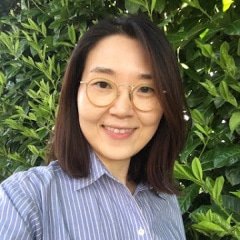
Ji Soo Hyun is a Ph.D. candidate in the History of Education program at the University of Washington. A native of South Korea, she holds an M.A. in East Asian Languages and Cultures from Columbia University and a B.A. in Korean Literature from Sookmyung Women’s University in Seoul. Prior to beginning her doctoral studies, Ji Soo worked as a researcher at the Institute for Modern Korean Studies in Seoul. There, she encountered the archives of two Korean private schools in Hawaii: the Korean Central School (1906–1919) and the Korean Christian Institute (1915–1940). The stacks of yellowing school records and photos—smiling Korean immigrant kids, Anglo-American and Korean teachers, lush Hawaiian palm trees—fascinated her, and led her to explore further. She found little documentation of the schools in either Korean or American historiographies and ultimately decided to devote her doctoral dissertation to them. Her study focuses on the schooling experience of Korean immigrants in territorial Hawaii (1898–1959) and poses new questions about its substance and significance, not only in relation to the American imperial project but also within the context of the competing imperialisms of the United States and Japan. Informed by the growing body of work on education for imperialism and education for global citizenship, her study aims to enrich our knowledge of the junctures between education and imperial projects.
Education at the Crossroads of Trans-Pacific U.S. and Japanese Imperialisms: Korean Schooling in Territorial Hawaii, 1906–1940
U.S. territorial Hawaii (1898–1959) was a highly contested site of engagement for immigrant Koreans. There, they encountered not only White Euro-Americans’ colonialist impulse for Americanization and the racial and economic subjugation of “Oriental” immigrants by a powerful and privileged haole (white) class, but also the strong nationalistic desire of Korean expatriates to liberate Korea from Japanese colonial rule. In this context of trans-Pacific U.S./Japanese imperial entanglement, Korean immigrants defied the status quo to develop and practice their own conception of a “proper” education. Drawing upon the cases of the first two Korean private schools in pre-statehood Hawaii and examining the stakeholders therein, my dissertation contextualizes the ways in which such educational institutions, established and run by Korean immigrants whose lives were enmeshed in the US/Japanese imperial projects, functioned as sites of negotiation for the meanings and methods of agency, nationalism, and citizenship. It argues that Korean-immigrant educators offered a distinctive brand of Americanization and civic education—one that emerged from a desire to establish Korean national sovereignty, promote ethnic nationalism, and create cultural differentiation, all while trying to emulate and assimilate into Protestant America. The two Korean schools and their politics of education offer a glimpse of the complex immigrant world that developed in relation to hegemonic forces of imperialism, nationalism, religion, race, and ethnicity, and reveals a novel form of modern subjectivity that was called into existence within this specific historical and regional setting.
Michael Jarry-Shore, Stanford University
Michael Jarry-Shore is a doctoral candidate in Curriculum Studies and Teacher Education at the Stanford Graduate School of Education. In his research, Michael is interested in what teachers need to know and be able to do to implement current visions of ambitious and equitable mathematics instruction. For his dissertation, Michael is studying productive struggle, which is present when students must exert notable effort in solving challenging mathematics problems. He is developing a framework describing different levels of struggle to help teachers identify and interpret evidence of struggle in assessing the struggle’s magnitude. He is also studying the nature of in-service teachers’ noticing of struggle and seeing if his struggle framework proves helpful in supporting this noticing. Michael previously taught mathematics to students in the 7th-, 8th-, and 9th-grades. This experience gave rise to his desire to understand how teachers can best be supported in meeting the many demands of teaching reform-oriented mathematics. He presently works as a research assistant on two projects, one that is co-designing and examining a district-wide initiative to prepare teacher leaders to lead site-based professional learning, and another that is developing and examining the use of surveys that offer mathematics teachers immediate and actionable feedback on their students’ learning experiences. Michael also works with elementary pre-service teacher candidates in the Stanford Teacher Education Program. He holds a bachelor’s of education from the University of Calgary, and a bachelor’s of science and master’s of arts from McGill University.

Noticing Student Struggle in the Middle-School Mathematics Classroom
Productive struggle occurs when students must exert notable effort in solving challenging mathematics problems. Opportunities to struggle productively are essential to developing rich understandings of foundational mathematics concepts. While teachers are increasingly offering students the kind of problems necessary to elicit such struggle, research suggests that it is challenging to then respond to students in ways that maintain struggle when it is already productive or make it productive when it happens not to be. To respond in such ways, teachers must first “notice” struggle, attending to evidence of struggle then making sense of this evidence in determining whether or not the struggle is productive. Little work, however, has examined the nature of teachers’ noticing of student struggle, and tools for supporting this complex practice are presently lacking. In this multi-phase qualitative research study, I am examining what and how teachers notice when watching videos of groups of students struggling to varying degrees in solving cognitively-demanding mathematics problems. I am also developing a framework to guide the process of identifying and interpreting evidence of struggle, then sharing this framework with teachers to assess its usefulness in supporting their noticing. This study will contribute to efforts to support teachers in meeting the demands of ambitious and equitable visions of mathematics instruction, according to which all students should have opportunities to struggle productively in their learning.
Jarrel T. Johnson, Iowa State University
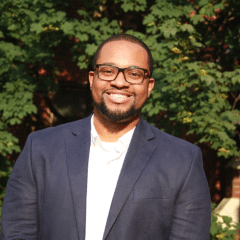
Jarrel T. Johnson is a Ph.D. candidate and Presidential Scholar in the Division of Higher Education with a minor in women’s and gender studies at Iowa State University. He holds a B.A. in English from Shaw University and M.Ed. in higher education leadership from Mercer University. Previously, Jarrel served five years as a student affairs practitioner where he worked at Emory University, Cornell University, and Iowa State University in support of institutional initiatives aimed at promoting the collegiate success of underrepresented, first-generation, and/or low-socioeconomic status students. Thus, Jarrel’s educational and professional experiences have informed his research agenda which contains the following strands: 1.) An exploration of students, faculty, and staff intersectional social identities (e.g. race, gender, and sexuality) and 2.) A critical examination of the role higher education institutions plays in shaping the experiences of institutional community members. His dissertation employs both strands of research interests by investigating and theorizing how two public historically Black colleges and universities (HBCUs) facilitate organizational change inclusive of Black queer and trans* student identities. Specifically, Jarrel’s dissertation centers the perspectives of HBCU administrators and Black queer and trans* students as they work across organizational structures to organize, develop, and implement inclusion initiatives.
“Quaring” HBCUs: A Case Study Examination of Queer and Trans* Student Inclusion at Two Public Historically Black Colleges and Universities
Often viewed as sites of racial uplift, historically Black colleges and universities (HBCUs) have been celebrated for their ability to foster familial and welcoming campus environments for their students. However, limited scholarship investigating the experiences of Black queer collegians at HBCUs has exposed how these institutions have failed to extend welcoming campus environments to queer students. Empirical research on queer and trans* student inclusion has traditionally investigated the role resource centers play in promoting queer and trans* student inclusion at Historically White Institutions. These studies are important to understanding queer and trans* student inclusion in higher education, but often disregard how multiple higher education organizational structures must act as queer and trans* inclusion advocates. Therefore, the purpose of this qualitative multiple case study is to investigate and theorize how administrators and students at two public HBCUs work across several organizational structures to organize, develop, and implement queer and trans* inclusion policies, programs, and services. Drawing from organizational climate and change theories in higher education and a quare theory framework, this study describes how the HBCUs address issues of campus climate, illustrates how HBCUs facilitate organizational change, and designs inclusion initiatives attentive to Black queer and trans* students’ identities. The data collection process includes interviews, focus groups, field observations, and document analysis. At the conclusion of this study, an organizational change theory model generated from the data in this study is presented. Findings from this dissertation have implications for future higher education research, policy, practice, and organizational change theory.
Jennifer Johnson, University of Oklahoma
Jennifer Johnson is an enrolled citizen of the Seminole Nation of Oklahoma and is also of Sac & Fox descent. She is a PhD student in the Educational Studies Program in the Educational Leadership & Policy Studies department at the University of Oklahoma. Her entire career has been in service to Tribal Nations and communities. Jennifer earned a B.A. in Elementary Education and a Masters of Education in Curriculum & Instruction with an emphasis in Language and Literacy from Arizona State University. She was an elementary school teacher on reservations in Arizona and Florida. Jennifer later worked for her Tribal Nation as a part of a team that developed and implemented Maskoke language revitalization and documentation efforts. Her dissertation focus is on the History of Education within the Seminole Nation.
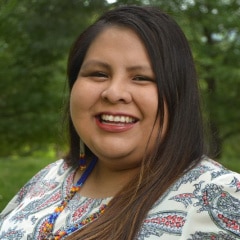
One Cannot Live Down One’s Raising in a Day: Seminole Education 1848-1930
Utilizing archival methods, the goal of this project is to describe how the Seminole Nation asserted sovereignty through their educational institutions. A critical component to this study involves the translation of a selection of historical Maskoke texts and curriculum. Local histories, politics and geographies challenge settler colonization narratives about the formation of early schools in Indian Territory. Within this area, Tribally controlled schools shape our understanding of the history of American Indian Education as the struggle for school control was representative of a larger movement to assert Tribal sovereignty. This project advances our understanding of the Seminole Nation’s educational institutions in the following ways. First, it reveals the autonomy that the Seminole Nation exercised over their schools during a tenuous time period. Second, my research strengthens our understandings of the ways in which the early formation of territorial schools was wrapped within a larger project of settler colonization meant to divest Tribal Nations of their sovereignty, land and property. Finally, this project contextualizes educational access for Seminole and Seminole-Freedmen students during Reconstruction through State Formation and ensuing Jim Crow legislation.
Matt Kautz, Teachers College, Columbia University
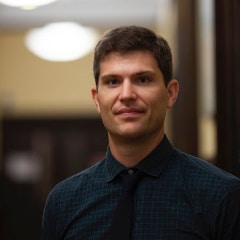
Matt Kautz is a PhD candidate in the History and Education program at Teachers College, Columbia University. His research studies changes in school discipline policy during the era of desegregation and its connections to concurrent changes in law enforcement. His work documents how school disciplinary policies during desegregation efforts were deeply intertwined with local law enforcement changes and makes explicit the role of urban schools in spurring mass incarceration.
Prior to pursuing his doctorate at Teachers College, Matt taught in Detroit, MI and Chicago, IL for four years. While in graduate school, Matt has worked with the Harlem Education History Project’s Youth Historian’s program as an instructor. Currently, he is a doctoral research fellow at Teachers College’s Center on History and Education. He holds a B.A. in English Language and Literature from the University of Michigan, and an M.A. in Education from the University of Michigan.
Punishing Promise: School Discipline and Boston Police during Desegregation
In cities throughout the country, both the number of school suspensions and the racial disparities in who schools suspended increased at an unprecedented rate during desegregation. In Boston, MA, these changes were especially dramatic. During the first year of desegregation (1974-1975), suspensions more than doubled and, while African-American students comprised only 38 percent of the school population, they represented 58 percent of school suspensions and received longer punishments than their white peers – a devastating trend that persisted for more than a decade with increasingly severe consequences. Compounding this punitive school discipline was the expanded reach of Boston’s police in and around schools as the mayor deployed half of the city’s officers into schools before eventually creating a separate safety and security department to patrol their hallways.
Matt’s dissertation studies how education and law enforcement policies in Boston merged in the lives of young people from the 1960s into the 1970s and 1980s. He connects school-based disciplinary changes during Boston’s distinct phases of desegregation and their racially disparate dimensions to changes in local law enforcement in order to understand how policies in these two domains merged in the lives of Boston’s youth. Using court documents, student codes of discipline, and other archival sources, he analyzes how the racialized construction of school disciplinary policy during desegregation furthered the criminalization of Black youth and led to high suspension, arrest, and dropout rates. His research returns attention to punitive disciplinary policy crafted during the era of desegregation and how schools helped spur mass incarceration.
David J. Knight, University of Chicago
David J. Knight is a PhD candidate in the Department of Political Science at the University of Chicago, where he is also a fellow in the Interdisciplinary Training Program in the Education Sciences. Before coming to Chicago, David was a certified public school teacher in Boston and San Francisco. This experience teaching and engaging youth in urban communities profoundly informs his research and public engagement. David is broadly interested in political socialization, race and ethnicity, adolescence to early adulthood, and social movements. His current research examines how public policy shapes young people’s sociopolitical development and transitions to adulthood across a variety of unequal settings—namely, criminal punishment, urban schooling, and housing. Originally from the New Orleans area, David received a bachelor’s degree in history from Dartmouth College, trained as a teacher at Stanford University, and began his research career as a master’s student at Harvard University.
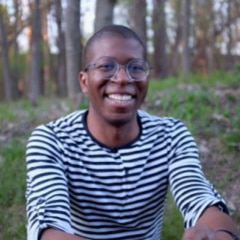
Sociopolitical Learning and Development in the Era of Mass Incarceration
Over the years, civic and political engagement in youth has become a central topic of concern in the field of education and other areas including psychology and political science. Scholars across these fields have constructed theories to understand how sociopolitical learning and development are and can be further cultivated, especially among young people in marginalized settings. These political and civic skills and engagements are critical for realizing equity and democracy. Yet very little is known about what sociopolitical learning and engagement mean and look like among young people along the carceral continuum, even though these systems structure the lives, learning, and development of hundreds of thousands of youth and young adults every year. This project uses these concerns as its point of departure, asking the following questions: First, what role does the carceral continuum serve as a context for civic and political learning and development? Second, in what ways do youth and young adults in these systems enact and develop new strategies and spaces of learning and reflection? To address these questions, this project utilizes mixed, multi-sited fieldwork involving youth and young adults, parents and caregivers, teachers and service providers, and judicial officers and public officials. These multiple lenses will shed light on a critical yet rarely studied context in which millions of young people learn and come of age.
Sophia Laderman, University of Denver

Sophia Laderman is a Ph.D. candidate in higher education at the University of Denver and a senior policy analyst at the State Higher Education Executive Officers Association (SHEEO). Her interests center around forming evidence-based policy and promoting the public benefits of higher education, and she is particularly interested in how and why public postsecondary finance and affordability policies are adopted and the ramifications of such polices. In addition to her dissertation, Sophia’s current research focuses on understanding ‘publicness’ and volatility in higher education finance policy, as well as the role of intermediary public policy organizations in the policy process. At SHEEO, Sophia focuses on higher education finance policy. She leads the State Higher Education Finance (SHEF) project and manages a grant-funded expansion of the SHEF data collection. She has also co-authored reports on student equity, tuition, and affordability. Before joining SHEEO, Sophia worked in admissions at the University of Colorado Boulder and as a research coordinator at Duke University. Sophia has a B.A. from the University of Hawai‛i Hilo and an M.P.A. from the University of Colorado Denver.
Does Publicness Matter? Determining the Impacts of Public Funding and State Authority on Higher Education’s Ability to Achieve State Goals
State involvement in public higher education is intended to promote the broad societal contributions of higher education, which include economic, civic, and social benefits to the state. States use authority and funding to drive institutional behavior and achieve their vision of the public good. Research has scarcely addressed how state funding and authority impact institutional behavior. As a result, higher education advocates are ill-equipped to convince policymakers of the importance of continued state investments in higher education. This study examines the effectiveness of the mechanisms of state funding and authority at driving institutional behavior to meet state goals for higher education amidst a dynamic landscape of declining per-student state funding and increasing institutional accountability to the state. Using an innovative three-way fixed effects model and a cross-sectional panel dataset of all public four-year institutions in the United States, this study employs resource dependence and principal-agent theory to examine how effectively states with varying contexts, funding, and authority over higher education are able to shape and direct the behavior of different types of institutions over time towards outcomes that benefit the public good.
Qing Liu, University of Wisconsin-Madison
Qing Liu is a doctoral candidate in Department of Education Policy Studies and Department of History at the University of Wisconsin-Madison, specializing in Asian American history, intellectual history and history of higher education. Originally from China, she was educated in Peking University in China, with a degree in the history of Sino-American relations. She has published a few articles in that field in peer-reviewed journals in China. She worked at Sun Yat-Sen University in China for a short time before coming to Madison. Combining her previously study experiences with her current training, Qing is now writing a dissertation focusing on Chinese migrant scholars in American universities during the 1950s and 1960s and examining how their knowledge production shaped, and was shaped by, cold war geopolitics.
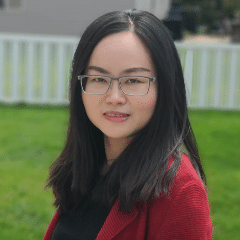
Stranded: Chinese Migrant Scholars in American Universities, 1940-1970
My dissertation focuses on a group of more than one thousand Chinese scholars who came to study in the United States during the 1940s as short-term students but who, owing to unanticipated diplomatic shifts, found themselves “stranded” in American universities during the 1950s and 1960s. Particularly after the outbreak of the Korean War in 1950, the U.S. government, for the first time in the history of Sino-American cultural ties, refused to permit American-educated Chinese to return home. Their situation was two-sided. On the one hand, many Chinese scholars in American universities faced discrimination and suspicion about their political loyalties—even in cases where their research had been funded by the federal government itself. On the other hand, as cold war universities were drawn into the national-security state, Chinese scholars’ language skills, cultural knowledge, and scientific expertise prompted their recruitment into research and teaching positions. Long before the civil rights movement or the immigration reforms of the mid-1960s opened academic institutions to other racial and ethnic minorities, Chinese scholars became an integral part of the U.S. academy. My research examines how these scholars navigated the variably favorable and unfavorable views of their place in American higher education and negotiated the delicate interplay of nationalism and internationalism in the production of “expert” knowledge. While their experiences took place during an earlier period of Sino-American rivalry, their story parallels similar dynamics of academic (geo)politicization today.
David McMillon, University of Chicago
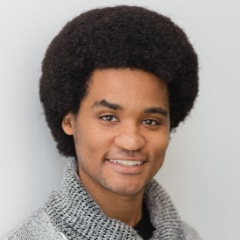
David McMillon is a doctoral candidate at the University of Chicago’s Harris School of Public Policy. He holds Master’s degrees from the University of Michigan in Mathematics and in Industrial and Operations Engineering.
In 2011 he participated in a Children’s Defense Fund conference that was held in light of Michelle Alexander’s book, The New Jim Crow: Mass Incarceration in the Age of Colorblindness. He spent a day with C.T. Vivian, an activist who worked directly with Dr. King. Vivian explained that for decades, activists have discussed issues surrounding the school-to-prison pipeline, and yet few agree on solutions. Indeed, after a long day of discussing why these problems need to be solved, someone asked how the problem could be solved. The result was complete mayhem.
Yet everyone seemed to agree on one thing. “It’s the system,” people would say. “The system is set up for us to fail.” “Everything is connected….You can’t just fix one thing without fixing another.”
The system. A common phrase frequently used by African-Americans when describing the interconnected structural and oppressive forces of the inner-city. David realized that reducing systemic disadvantage requires systems thinking, and that his training in complex systems theory could be harnessed to simulate alternative interventions to dismantle the school-to-prison pipeline by explicitly accounting for its interconnected complexities. This allows for strategic targeting of “tipping points,” through which appropriately timed and targeted policy changes can lead to persistent effects. This marked a major turning point in his development, ultimately culminating in his dissertation.
Dismantling the School to Prison Pipeline: Three Essays on the Policy Implications of Systems Thinking
Where, when, and how should we intervene on the School-to-Prison Pipeline (STPP)? Most scholars agree that there are many factors that impact incarceration, including, but not limited to: arrest, identity formation, peers, and underachievement. Although much of the literature has statically investigated these factors in isolation, most scholars believe that the STPP persists due to an ecological system of interrelated factors that evolve dynamically. What happens to children facing all of these mechanisms simultaneously? And how might that inform where, when, and how we should intervene?
This dissertation proposes a research paradigm that can eventually help answer these questions, presenting the first set of dynamic mathematical models that approach the STPP from a systems perspective. This perspective allows us to foresee surprising policy consequences that would not be obvious under dominant research paradigms. It illuminates conditions under which small policy changes lead to persistent effects; large policy changes have essentially no effect; and the same policy has opposite effects under different initial conditions.
This dissertation combines three interrelated studies, each focusing on different aspects of the STPP. Study 1 explores the systemic policy implications of state-dependent criminality outside of the school, while Study 2 focuses on reducing behavioral infractions through school disciplinary policy. Finally, because achievement and positive academic identities are so preventive of antisocial behavior in schools, Study 3 focuses on sustainably improving achievement and academic identity formation. This dissertation operationalizes an innovative research paradigm to dismantle the STPP, under the premise that reducing systemic disadvantage requires systems thinking.
Julissa Muñiz, Northwestern University
Julissa Muñiz is a PhD candidate in Human Development and Social Policy at Northwestern University in the School of Education and Social Policy. As an educational ethnographer, her research focuses on sociocultural forms of learning, youth identity development, and the design and implementation of learning environments in the carceral context. Julissa’s work is deeply informed by her experiences in prisons and juvenile facilities as a tutor, GED instructor, writing workshop facilitator, art instructor, facility monitor, and most recently as a college instructor. It was in fact her students and inside co-teacher at San Quentin State Prison who first encouraged her to study learning and education in the juvenile context.
Julissa holds an M.A. in Human Development and Social Policy from Northwestern University, an Ed.M. in Education from the Harvard Graduate School of Education and a B.A. in Ethnic Studies from the University of California, Berkeley. Upon graduating from HGSE, she was nominated and awarded the 2016 Intellectual Contribution/Faculty Tribute Award for her department. Additionally, Julissa has received funding for her doctoral studies and dissertation research from the Paul and Daisy Soros Fellowship for New Americans, University of Texas Austin Division of Diversity and Community Engagement, the Social Science Research Council/Northwestern University, the Buffett Institute, and the Northwestern Program of African Studies.
As a doctorate student, Julissa founded Northwestern’s first Latinx-centered graduate student organization, Comunidad Latinx, and served as the organization’s president for two years. When she’s not reading and writing, she enjoys traveling and hiking with her daughter, Amaris, and her fiancé, Devin.
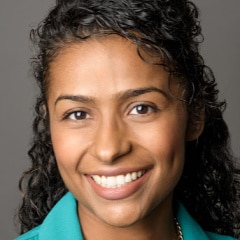
“I Don’t Think No Kid Should Be Here:” A Critical Ethnography on Learning in the Carceral Context
Using a critical ethnographic approach, my dissertation examines a Midwest County juvenile detention center as a site of learning. Bringing together cultural historical activity theory and institutional theory frameworks (CHAT-IT), this study foregrounds learning in context, more notably how learning is conceptualized, organized, and experienced by the various social actors within the juvenile detention center (Ogawa, Crain, Loomis, & Ball, 2008). In addition to investigating the varied forms of learning accessible to incarcerated youth, this study examines how different institutional actors, particularly the adults in the carceral setting, (i.e. administrators, teachers, security staff, and community members) organize and conceptualize education under confinement. In what ways are these narratives different, or similar to, how young people narrate their learning and schooling experiences? By studying education in the carceral context—a liminal space between schools and prisons—and the experiences of those caught in both worlds, researchers, educators, and policymakers can develop a better understanding of 1) what it means to learn and go to school while incarcerated as a young person, 2) how juvenile practitioners conceptualize, design, and organize education for those inside, and 3) how youth make sense of those learning experiences in ways that have implications for their educational trajectories. Otherwise, our conceptualization and approach to the school prison nexus will remain incomplete, further harming countless youth and communities over time.
Briana Nichols, University of Pennsylvania

Briana Nichols is a joint Ph.D. candidate in the Graduate School of Education and the department of Anthropology at the University of Pennsylvania. Prior to her doctoral studies, Briana earned a B.A. in Anthropology and a Masters of Teaching, both from the University of Chicago. As a dual language middle school teacher in the Chicago Public Schools, Briana witnessed her students grappling with disjunctures between the dominant narrative focusing on trauma and suffering pre-migration, and their actual lived experiences in their countries of origin. This tension inspires her inquiries into the larger implications of erasure in migration discourse. Departing from scholarship that focuses on future-making in terms of youth mobility, her work centers on youth who fight to remain in their communities. Briana examines the intersection between transnational development, international migration, and indigenous youth educational striving in Guatemala, and explores the everyday practices of young people as they attempt to create futures of non-migration. Her research can be found in Language & Communication and VOLUTNAS: International Journal of Voluntary and Nonprofit Organizations. She has also written for the Center For Migration Studies New York, Anthropology News and Youth Circulations. She is a recipient of a Dean’s Fellowship from the University of Pennsylvania and a Global Scholars Early Career Fellowship from the University of California, Irvine. Through her work, Briana builds on critical anthropologies of education to bring public awareness to the pressing realities of young people in migratory contexts.
Waiting for Change: Indigenous Youth Striving for Non-Migration in Guatemala
In an era of heightened concerns over human mobility, this dissertation contends with the afterlives of migration, asking what future possibilities emerge for young people living in communities where leaving is the dominant form of economic survival. Practices of future-making are key sites for understanding how youth reckon with their lived realities. In contexts of extreme migration, scholarship largely attends to those who make-futures by leaving, rather than the young people fighting to remain in their communities of origin. This focus obscures the material, social and institutional practices that coalesce in migration’s wake and influence the trajectories of the youth who remain.
This research asks, in contexts of extreme migration, how do young people come to imagine the possibility of a non-migratory future? What strategies do young people employ to attain these futures? And, ultimately, what social, material and institutional practices structure the realizability of non-migration? Based on ethnographic fieldwork in Guatemala and the U.S., this study examines Guatemalan indigenous youth who participate in education-based migration prevention programs. It explores how young people navigate emergent tensions between local knowledge and developmentalist notions of progress in their everyday practices of future-making. Drawing upon theories of mobility within contexts of capitalist restructuring (Green, 2011; Glick Schiller, 2010), education and youth futures (Johnson-Hanks, 2014; Mains, 2013), and the sociocultural nature of development implementation (Curtis & Spencer, 2012), this project offers insights into the relationship between educational attainment, mobility and international development in contexts of extreme migration.
Sebastián Otero, Stanford University
Sebastián Otero is a Ph.D. candidate in Economics at Stanford University. His research focuses on labor economics, with a particular emphasis on education policy in Latin America. His research exploits ties with governments and local education agencies to leverage their data to design and implement practical, scalable policies with the potential to be translated into other contexts. He also combines the use of administrative data with program evaluation tools together with structural modeling to estimate the impacts of these and other on-going policies.
In his dissertation, Sebastián explores the consequences of a large-scale affirmative action policy in federal universities in Brazil. In other work, he studies how a large expansion of public schools impacted private schools in the Dominican Republic. He has also done research in Chile, where he analyzed the impacts of a national food labeling policy on the demand and supply of healthier food.
Before entering the Ph.D. program, Sebastián worked as a Research Associate for J-PAL LAC. Originally from Chile, Sebastián holds a B.A. and M.A. in Economics from the Pontificia Universidad Católica de Chile.
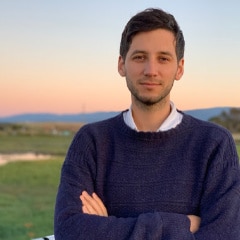
Affirmative Action in College Education
This paper empirically studies the distributional consequences of affirmative action in selective college education in the context of a centralized admission system. We examine the effects of a law passed in Brazil in 2012, mandating all federal public universities to increase the number of seats reserved for public high-school students to half of the total. We find that after the policy was put in place, the student body composition of public institutions became more similar to that of the applicant pool. We show that the proportion of admits to public institutions from private high schools dropped from 55% in 2011 to 35% in 2016. This is closer to the 20% share of overall high-school graduates that private school graduates represent. To study the overall distributional consequences of the policy, we leverage the rules from the centralized admission system and simulate a counterfactual allocation of spots in a regime without affirmative action. Our research design exploits admission cutoffs for heavily over-subscribed degrees to estimate the policy effects on the marginally benefited and marginally displaced students. We leverage random variation in university entrance exam scores to evaluate the implications for individuals away from the discontinuities.
Hafsa Oubou, Northwestern University
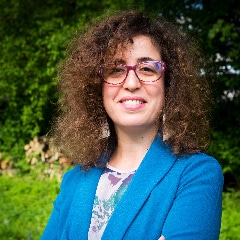
Hafsa Oubou is a PhD candidate in anthropology at Northwestern University with an MA in Middle Eastern and North African Studies from the University of Arizona. While earning her MA, she became interested in the question of Islam in Europe and the Moroccan diaspora in Belgium. In her research, Hafsa engages more broadly with questions of education, religion, politics, secularism, diaspora, migration, gender, and race. Her dissertation investigates how teachers of Islam in public schools respond to the public discourse around the place of religion, particularly Islam, in public education. In addition to the NAEd/Spencer Dissertation Fellowship, Hafsa received funding for her research project from the National Science Foundation and the Wenner-Gren Foundation, as well as from Northwestern University, namely the Earle Dissertation Award from the Department of Anthropology, the Graduate Dissertation Award from the Buffett Institute, and the Politics of Religion at Home and Abroad Award from the Henry R. Luce Initiative on Religion in International Affairs. Hafsa obtained her BA degree in English Linguistics from Ibn Zohr University in Agadir and another MA degree in Communication Studies from Cadi Ayad University in Marrakech, Morocco. She is currently a visiting fellow at the Interculturalism, Migration and Minorities Research Center at the Catholic University of Leuven, Belgium (2018-2020).
Teachers of Islam: Education, Religion, and Politics in Public Schools in Belgium
After the 2016 attacks in Brussels, Belgium, media discourse immediately focused on youth and public education, blaming instructors of Islam and imams (prayer leaders) for their alleged failure to teach the democratic values of le vivre ensemble, a popular French expression that means co-existence. The teaching of Islam in public schools in francophone Belgium suddenly became a contentious enterprise rather than evidence of co-existence, leading to a growing suspicion towards teachers of Islam and a heated debate among political parties to remove classes of religion from public schools. Many teachers of Islam in public schools have recently engaged with the idea of le vivre ensemble as an Islamic value while navigating increasingly visible challenges: teaching Islam in a political climate that sees Islam as a threat to national security and responding to controversial education reforms that target courses of Islam. In this dissertation, I examine how the intersection of education, religion, and race in public schools shapes religious and ethnic minorities. Using ethnographic methods from fieldwork in Brussels, I explore how teachers of Islam understand and engage with the values of co-existence in an historical moment characterized by Islamophobia and extreme-right politics in Belgium. More broadly, this research seeks to understand what the teaching of co-existence as an Islamic value tells us about the question of Islam in Europe today.
Jessica Peng, University of Pennsylvania
Jessica Peng is a joint Ph.D. candidate in Education, Culture, and Society and Anthropology at the University of Pennsylvania, with a concentration in International Education Development. She has broad research interests in the social production of difference, processes of social and geographic mobility, and the workings of education reforms. Her current research examines Indonesia’s efforts to become a top global economy, key to which is a focus on developing “skilled” youth labor forces across some of the most marginal areas of the country. The study analyzes how the vocational training of young people have come to be viewed as an “infrastructural” prerequisite for national development and, more specifically, how efforts of national policymaking and local implementation orient youth to pursue particular kinds of futures. This project has been supported by a Fulbright-Hays Doctoral Dissertation Research Abroad Fellowship, an American Institute for Indonesian Studies-Council for American Overseas Research Centers Fellowship, and a University of Pennsylvania Graduate and Professional Student Assembly-Provost Fellowship for Interdisciplinary Innovation.
Prior to her doctoral studies, Jessica taught as a Fulbright English Teaching Assistant and a Vassar Maguire Teaching Fellow in Indonesia. She has also served as a research specialist for several large-scale education projects in Indonesia, including the USAID Higher Education Leadership and Management Project, Asian Development Bank’s Polytechnics Education Development Project, and Room to Read’s Digital Library program. She earned her B.A. in International Studies at Vassar College and her M.S.Ed. in Education, Culture, and Society at the University of Pennsylvania.
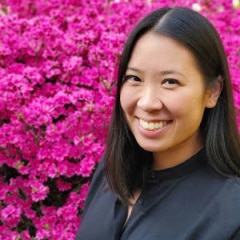
Archipelagic “Potentials”: Infrastructures, Education, and Labor in Indonesia
In the sprawling archipelagic nation of Indonesia, education policymakers in the country’s mega-metropolitan capital and youth attending a remote fisheries vocational school in South Sulawesi are connected by a common thread: their everyday engagement with the concept of potensi, or “potential.” Framed by the central government’s commitment to “develop Indonesia from the margins” by leveraging the “economic potentials” of the country’s poorest areas and ensuring adequate human capital are available to support localized development efforts, this ethnographic study attends to the activities of vocational education and workforce development across three interconnected domains: (1) national education policymaking; (2) education-to-work public-private partnerships; and (3) vocational schooling. The study discerns how linkages between new infrastructures, emergent markets, and novel educational practices shape conceptualizations of potentiality at different levels of Indonesian society. It further explores how these conceptions of potentiality guide the terms through which social actors pursue their futures in the areas of education and labor. In the aggregate, the study shows how various ideas of potentiality—formed through people’s descriptions of latent capacities, warnings against undesirable outcomes, and aspirations for particular futures—give vocational education new cultural meanings in contemporary Indonesia. It also offers broader theoretical insights into how potentiality serves as a key mechanism through which education problems, solutions, and visions are formed.
Kathleen Reeb-Reascos, State University of New York, University at Buffalo
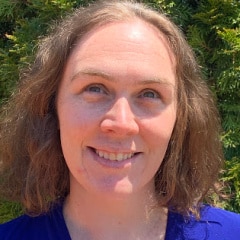
Kathleen is a Ph.D. Candidate in the Educational Leadership and Policy Department at the University at Buffalo. As a doctoral student in the Educational Culture, Policy, and Society Program, she has cultivated her research focus through the interdisciplinary study of educational equity, access, and opportunity. Katie’s broad research aims seek to better understand the interplay among class, race, and ability as informed by the field of the sociology of education. Her dissertation work specifically examines the structures, institutions, and systems that undergird educational opportunities and pathways for students with (dis)abilities. While at UB, Katie has worked as a research assistant and adjunct instructor. She holds a Master’s of Education in Educational Studies – Learning and Instruction from the University at Buffalo, as well as a Bachelor’s of Science in Journalism and Spanish from Middle Tennessee State University. Prior to enrolling at UB, Katie spent five years teaching English abroad in Costa Rica, South Korea, and Ecuador. Outside of the university, she has the privilege of raising two spirited young boys, Jackson and Roman, as well as experiencing life with her husband, Nico.
Placing Students with (Dis)abilities: A Qualitative Examination of How Institutional Arrangements and Parental Involvement Influence Placement Processes and Opportunities for Students with Higher Needs
Given the unequal foundations of American schools, prime educational opportunities are not available to all students. Schooling, in early childhood, elementary, middle, and high school varies by district, building and academic program, and only select students have access to the resources and coursework that support advanced educational opportunities (Oakes, 1985; Oakes, Gamoran, & Page, 1992; Weis et. al., 2015). To date, significant research has examined the structural forces that allocate opportunities to students in general education, but the structural mechanisms through which opportunities are distributed to students with (dis)abilities remain underexplored. Invoking the work of Alan Kerckhoff (1993, 1995), this dissertation study examines how and to what extent institutional arrangements and parental involvement influence placement processes and educational opportunities for students with (dis)abilities. This dissertation is an ethnographic investigation that combines semi-structured, in-depth interviews, participant observation, focus-group interviews, and document analysis to answer the research questions. The study probes the experiences, practices, perceptions, and beliefs of parents and site personnel at three public elementary schools with distinct typologies (urban open, suburban mixed, and suburban advantaged) as they relate to the process of establishing and implementing Individual Education Programs (IEPs). Specifically, this study has built purposeful cells of parents, special education teachers, general education teachers, special education coordinators, school Psychologists, and building administrators at each site. Through this research, we will better understand how placement and educational opportunities for students with (dis)abilities are distributed through structural mechanisms and institutional arrangements.
Sarah Rendón García, Harvard University
Sarah Rendón García is a Ph.D. Candidate in Education (Human Development, Learning, and Teaching) at the Harvard Graduate School of Education. She employs a social-emotional learning framework and dual-generation approach to examine the psychological well-being of families originating from Latin America and impacted by immigration status. Her dissertation focuses on the relationships between child development, the caregiver-child relationship, and children’s understanding of immigration status. In addition to drawing on developmental-contextual and attachment theories, her own experiences growing up Latina with undocumented status in the northeast United States informs her work.
Prior to enrolling at Harvard, Sarah worked for Child First; an evidence-based, early childhood, home visiting program aiming to buffer toxic stress through positive caregiver-child relationships. She was actively involved in youth community work through Connecticut Students for a Dream. Most recently, Sarah served as co-chair for the Harvard Educational Review and as a lead teaching fellow for How People Learn, an online, personalized course connecting the science of learning and human development to professional practice in education. Sarah holds an Ed.M. in Prevention Science and Practice from the Harvard Graduate School of Education and a B.A. in Psychology and French from College of the Holy Cross.
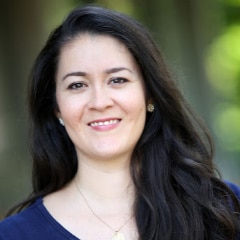
Navigating Immigration Status en Familia: An Exploration of Caregiver Understanding, Child Awareness, and Caregiver-Child Attachment Quality in Latinx Mixed-Status Families
How do Latinx mixed-status families approach and engage in conversations about undocumented status? This dissertation explores the role of familial strategies for developing shared understandings of being undocumented. I seek to better understand how undocumented immigration status shapes the developmental trajectory of Latinx children in middle childhood, a life stage during which children typically become more socially aware and have more-developed perspective-taking capacities. To explore this, I am conducting an in-depth mixed-methods study in which I interview Latinx mixed-status family units with at least one child between the ages of 6-14 years old, in three small cities in the northeastern United States. With each family, I conduct a series of 3 semi-structured phenomenological interviews with at least one caregiver. I also interview their children between 6 and 14 years old about their experiences being a part of their family through a book reading, a video clip viewing, and a series of questions following the reading of narratives. I examine, for the first time, attachment profiles across a sample of Latinx mixed-status caregiver-child dyads using the Parent Development Interview (Aber et al., 1993) and principal components analysis. Based on preliminary findings, I hypothesize that children’s awareness of undocumented status before adolescence centers around the caregiver–child relationship rather than the direct impacts of immigration status on the child’s own life outcomes. The findings from these studies will provide knowledge about the education that occurs within families around the topic of immigration, which will help support schools’ efforts to work with this community.
Alexa Rodriguez, Teachers College, Columbia University
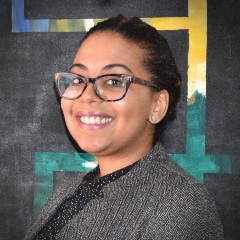
Alexa Rodriguez is a Ph.D. Candidate in History and Education at Teachers College, Columbia University. Her scholarship intersects the history of education, Latin American history and United States history. Analyzing the implementation of U.S.-led educational reforms in the Dominican Republic between 1916 and 1924, her dissertation links this case study to a longer history of U.S. imperialism in education. By examining the occupation through schools, her work reveals how education systems are crucial to the ways in which ordinary actors exert their agency within informal imperial structures. Before beginning her doctoral studies at Teachers College, Alexa received her M.S. in Educational Studies at The Johns Hopkins School of Education and her B.A. in History and American Studies at Fordham University. While in Maryland, Alexa worked as an early childhood educator in Baltimore City.
The Paradox of Education and Empire: U.S. Occupation of the Dominican Republic, 1916-1924
“The Paradox of Education and Empire” investigates the execution of education policies aimed at modernizing the Dominican Republic during the U.S. occupation from 1916 to 1924. Simultaneously employing top-down and bottom-up perspectives, I draw on archival sources from both the U.S. and the Dominican Republic to study the role of local education officials and parents in the school reforms. I find that Dominican parents, teachers and administrators, rather than U.S. officials in the military government, were central to the application of the education policies. They decided which changes to institute in accordance with their own timelines and implementation strategies. Accordingly, the reforms were also severely limited when these local actors began to oppose them.
By studying the shift from Dominican collaboration to resistance, I contribute to debates about the potential for agency and negotiation within U.S. imperial structures and reveal the paradox of using schools as a vehicle for imperial expansion. In doing so, this dissertation makes three critical interventions: the first is a revision of the historiography of the U.S. occupation of the Dominican Republic by centering education as a way to investigate Dominican responses to the U.S. military government. The second is to de-center the United States within histories of U.S. informal empire by focusing on non-American actors who supported its expansion. Finally, I contend that despite goals to indoctrinate Dominican subjects through schools, Dominicans challenged and repurposed them, thereby exposing the limits to U.S. imperial policies.
Owen Schochet, Georgetown University
Owen Schochet is a doctoral candidate in the Human Development and Public Policy Program in the Department of Psychology at Georgetown University. His research uses rigorous experimental and quasi-experimental methods to examine the effectiveness of publicly-funded early childhood education (ECE) programs in promoting the learning and development of low-income children, including through their effects on parents’ human capital and economic self-sufficiency and parenting skills and behaviors. His research has been published in Early Childhood Research Quarterly, The Journal of Family and Economic Issues, Exceptional Children, and Children and Youth Services Review, and by the Brookings Institution, the Urban Institute, and the Administration for Children and Families, Office of Planning, Research, and Evaluation. Prior to his doctoral work, Owen completed a B.S. in Brain and Cognitive Sciences from the University of Rochester, worked as a Research Assistant and then Analyst at Mathematica Policy Research, and completed a Master’s Degree in Public Policy from Georgetown University’s McCourt School of Public Policy. He is a proud member of the Child Development and Social Policy (CDSP) Lab at Georgetown University.
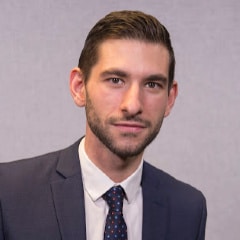
Unpacking the Causal Effects of Two-Generation Early Intervention Services on the Outcomes of Low-Income Children and their Families
Two-generation early intervention programs are potentially powerful approaches to enhancing the development of low-income children. Such programs, which often combine center-based early care and education services with home visiting and family case management, assume not only that each of these services is independently effective, but also that they are more beneficial for participants when provided together. Indeed, seminal research suggests that random assignment to our nation’s paradigmatic two-generation program – Early Head Start (EHS) – can positively impact parents’ human capital and self-sufficiency, parenting skills, and children’s outcomes (Love et al., 2002). Yet, this research only examines the impacts of receiving the full package of two-generation EHS services together; the independent contributions of each service to such a broad pattern of multiple significant impacts remain poorly understood.
This dissertation unpacks the precise impacts of the two-generation services that programs like EHS provide. I first investigate the effect of each two-generation service on parents’ human capital and self-sufficiency and parenting skills, including their cognitive stimulation and emotional support of their children. Next, I estimate the unique effect of each two-generation service on child outcomes directly. The EHS Research Evaluation provides the ideal data for this investigation as it includes information on the receipt of various two-generation services for both treated and control group participants. Using multi-site random assignment to EHS as instrumental variables – and exploiting cross-site variation in program implementation – I estimate the impacts of each two-generation service on participant outcomes by modelling multiple service mediators in a two-stage least squares framework.
Sarah Surrain, Harvard University

Sarah Surrain is a Ph.D. candidate in Human Development, Learning and Teaching at the Harvard Graduate School of Education. Her research focuses on the social and environmental factors that support bilingual development in early childhood. Her work combines insights and methods from the fields of child language acquisition, bilingualism, and early childhood education with the goal of improving the wellbeing and school outcomes of children who speak a minoritized language at home. She is particularly interested in how parental attitudes and home language practices contribute to children’s skills in a minoritized home language leading up to and following school entry. Prior to her doctoral studies, Sarah was a curriculum developer and literacy coach in Spanish-English bilingual classrooms in Chicago. She received an Ed.M. in Language and Literacy from the Harvard Graduate School of Education and a B.A. in Theatre Arts from Kalamazoo College.
Dual Language Learners in Transition from Home to School: The Role of Parental Attitudes and Home Language Practices in Bilingual Development
The language skills that children acquire in early childhood are essential for social relationships and school learning. For the large and growing number of children who are learning a minoritized language at home (dual language learners, or DLLs), developing and maintaining skills in the home language alongside the socially dominant language can enhance family relationships, school outcomes and emotional wellbeing. However, many DLLs experience interrupted acquisition of their home language after beginning formal schooling. This raises the question: what contextual factors promote (or inhibit) DLLs’ acquisition and maintenance of the home language, particularly after beginning school in the socially dominant language? Theoretical models have pointed to parental attitudes and home language practices as key factors in bilingual outcomes, yet empirical evidence on the role of these factors and their stability over time is scarce. In my three-study dissertation I address this gap by investigating how parental attitudes and home language practices support DLLs’ bilingual development during the transition from home to school. Study 1 tests the relation among linguistic diversity in local communities, parents’ perceptions of the value of bilingualism, and parents’ language practices using survey data. Study 2 explores perceptions and home language practices of Spanish-speaking mothers of preschoolers through qualitative interviews. Study 3 uses structured home observations of Spanish-speaking parent-child dyads before and after children start preschool to describe whether and how parents’ perceptions and home language practices shift spanning this important transition, and how perceptions and practices are related to skills in each language.
Huimin Wang, University of Wisconsin-Madison
Huimin Wang is a Ph.D. candidate in the Department of Educational Policy Studies at the University of Wisconsin-Madison. Her interests center on the histories of education reform, childhood, and psychology in twentieth century United States. In her research and scholarship, Huimin aims to unpack the underlying assumptions, complicated contours, and socio-political implications of past education policies, and to bring historical insights to current education debates through deep contextualization of categories, classifications and norms. Her dissertation explores the history of emotional interventions in U.S. public schools from World War I to 1950. Specifically, she looks at how educators and social scientists used psychological knowledge to tackle the problems of school or social “misfits,” with the goal of creating “well-adjusted” citizens.
Huimin grew up in southeast China and moved to the United States to start her Ph.D. in 2014. Prior to her doctoral study, she received an M.A. in History of Education and a B.A. in Education and English Literature, both from Beijing Normal University in China.
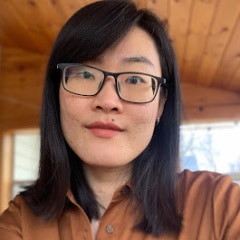
Creating the Well-Adjusted Citizen: The Human Sciences and Public Schools in the United States, World War I – 1950
Since the end of World War I, a new way of thinking about individuals’ fit (and misfit) in social and educational institutions spread in the United States. The key to evaluating fitness was various conceptions of psychological “adjustment” and “maladjustment.” This project explores the emergence and circulation of adjustment thinking in the human sciences and public schools from World War I to 1950, and the social implications of the scrutiny of emotional fitness among its citizenry in the U.S.
The study utilizes a variety of archival sources and print materials: personality tests, personal papers of social scientists, records of philanthropic foundations and welfare agencies, and scholarly and popular publications. By revealing embedded perceptions of human differences and hierarchy in scientific constructions of the “well-adjusted citizen,” this study sheds new light on the roots of what became commonsense understandings about children’s socio-emotional development and mental health.
Cora Wigger, Northwestern University
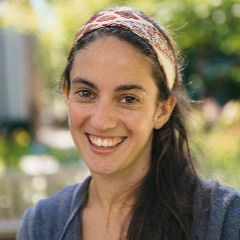
Cora Wigger is a PhD Candidate in Human Development and Social Policy at Northwestern University. Her research focuses on the intersection of education and housing and currently centers on issues of school finance and student assignment/school choice. She primarily uses quasi-experimental quantitative methods to identify the effects of policy and economic shifts on individual, group, and market outcomes. Her work has been supported by Northwestern University’s Multidisciplinary Program in Education Sciences (funded by the Institute for Education Sciences) and Institute for Policy Research.
Prior to beginning a PhD, Cora worked in a variety of non-profit and government settings, including a Domestic Violence service agency in Louisville, Kentucky and the Tennessee Department of Education. She has previously worked on research projects in conjunction with public school districts in Evanston (IL), Louisville (KY), and Nashville (TN). Cora holds a Master’s in Public Policy from Vanderbilt University’s Peabody College and a BA in International Economics from the College of Wooster.
Full Circle: Assessing the Changing Link Between Education and Housing
My work examines how policies change the persistent relationship between education and housing. In this study, I focus on a popular and ever-changing topic: school choice. I examine how replacing neighborhood schools with a system of school choice changes the demographics and housing costs of neighborhoods. I use a quantitative research design exploiting the multi-year rollout of a policy in Denver, Colorado that decoupled homes from schools by creating a set of “School Enrollment Zones” in place of neighborhood school boundaries. Students residing in Zones were no longer guaranteed admission to their local neighborhood school and were instead directed to rank their choices from a bundle of nearby schools. Most studies examining the effect of school choice on housing markets and neighborhood demographics have examined policies that offer school choice as a means for families to opt out of their residentially assigned school. My study is unique in that it empirically examines the effects of school choice on its own, absent a residential assignment mechanism. Results of my study will help educational researchers and policymakers alike to understand similar school choice policies and to gain a greater understanding of the mechanisms by which school choice operates in all contexts.
Choua P. Xiong, University of Wisconsin-Madison
Choua P. Xiong is a PhD candidate in the department of Educational Policy Studies at the University of Wisconsin-Madison (UW). Her approach to research is rooted in her refugee experience and the desire to understand the stories of displacement told by HMoob people. Choua is interested in the ways displaced youth and communities utilize education to negotiate belonging and demand structural changes. Moreover, she considers how such processes intersect with ethnicity, race, gender, sexuality, and class. Her work is informed by her activism as a researcher and educator within the HMoob and Southeast Asian communities in community-based educational spaces, schools, and higher education. At UW, Choua participated in various collaborative and community-based participatory action research (CBPAR) projects that center the perspectives of marginalized youth and interrogate the roles communities of color play in educating youth about schooling, political participation, belonging, historical trauma, and healing. As a continuation of her U.S.-based projects, Choua’s dissertation, funded by the USED Fulbright-Hays Doctoral Dissertation Abroad award, examines how HMoob youth make sense of belonging, citizenship and displacement within a nationalistic Thai school. Specifically, a study highlighting the perspectives of HMoob in Thailand can provide insights on the narratives of trauma, violence, and displacement within the HMoob diasporic community.

The Home Called HMoob: Sociocultural Citizenship and Belonging in a Northern Thai School
When educational policies and practices offer limited conceptions of citizenship, how do HMoob people, who are historically classified as stateless, national threats, and uncivilized Others in Thailand, make sense of the messages they receive about their place in the Thai state, and how do they negotiate inclusive and relevant educational opportunities? This 12-months ethnographic study aims to examine how HMoob youth navigate exclusionary practices of citizenship and belonging within a school in Phetchabun Province, Thailand. Since the 19th century, the educational system in Thailand has been a project of the nation-state, reinforcing nationalistic ideas of a homogenous Thai identity (Johnson 2005; Winichakul 1994). Recent educational policies have attempted to build a more democratic and inclusive government and education system for Thailand’s diverse population, but highlanders like the HMoob are often excluded from these processes. This study employed extensive interviews and participant-observation of youth activities in a predominately-HMoob school and the community to explore the following research questions: What gendered, ethnicized, and classed messages do nationalistic formal schools attempt to inculcate in HMoob youth about citizenship? How do HMoob youth utilize everyday practices of sociocultural citizenship to negotiate a place to be Thai and HMoob? I draw on feminist theory to consider how gender and schooling shape the reproduction and transformation of cultural practices in this community, as students negotiate their place as HMoob people (Gailey, 2015). This project contributes to the understanding of how displaced youth forge educational and communal spaces of belonging despite marginalizing hegemonic discourses of citizenship.
Peng Yin, University of California, Berkeley
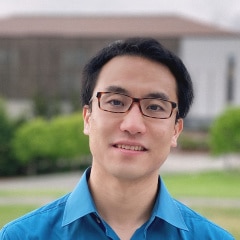
The Racialization of International Student Mobility: Roots, Effects, and Implications for American Higher Education Institutions
My dissertation investigates how international student mobility (ISM) in the context of American higher education institutions (HEIs) has become increasingly subjected to an emergent paradigm of racialized otherness. To contextualize my inquiry on the paradigm of racialized otherness, I choose to focus on a specific and vibrant body of the international student population enrolled in American HEIs, i.e., undergraduate Chinese international students. As an illustrative case, examining the paradigm of racialized otherness vis-à-vis the undergraduate Chinese international students aims to offer a distinctive yet nonexclusive lens to probe into the racialization of ISM on a broader scale. My dissertation consists of three studies. Study 1 adopts the method of critical discourse analysis to examine and identify the undergirding constituents of the paradigm of racialized otherness. Study 2 draws on the framework of item response theory (IRT)-based modeling to construct and validate a measurement instrument that taps into the students’ perceptions of the undergirding constituents of the paradigm of racialized otherness. Study 3 takes the approach of multi-sited ethnography to explore how to leverage the affordances of the students’ everyday learning and living experiences to tackle the paradigm of racialized otherness. The findings of my dissertation are intended i) to inform the development of design-based initiatives, both within and outside formal instructional settings, to address the ongoing and intensified trend of racialization concerned with ISM, and ii) to facilitate the conceptualization of a policy agenda for re-envisioning and promoting equity and diversity as entailed by the continuous internationalization of American HEIs.
